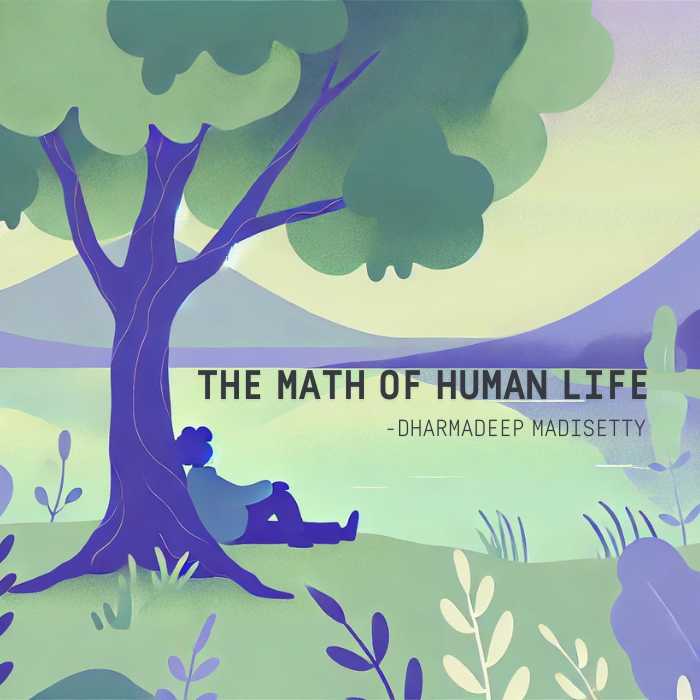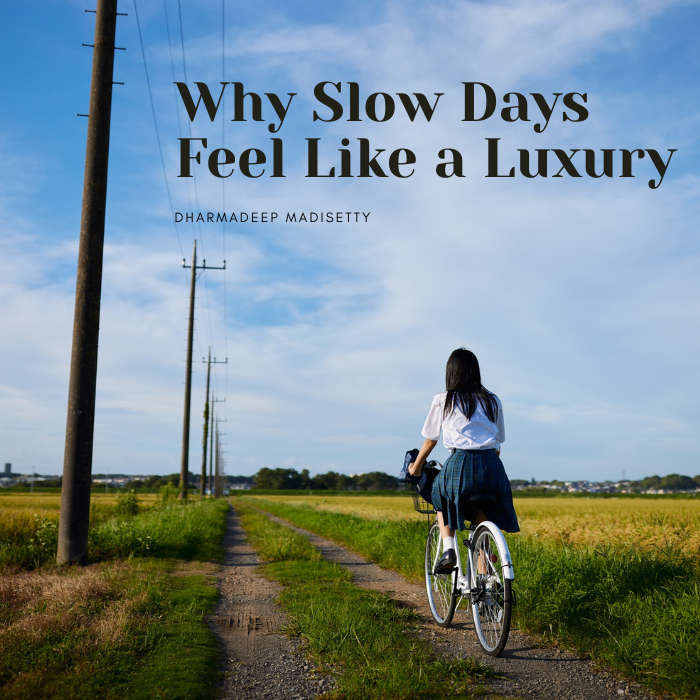The Math of Human Life: Why the Universe’s Equation Doesn’t Work on Us
The universe runs on a simple rule: more output = more value.
Stars, rivers, machines, galaxies — the longer they produce, the more they matter.
But humans don’t fit that math. Life doesn’t reward us for endless output. We’re not engines; we’re emotional. For us, the equation flips.
A day well spent isn’t the busiest. It’s the one where we laughed, breathed deeply, felt calm. In a universe obsessed with production, we’re the only ones where slowing down is what counts as living.
The Numbers Behind It
Zoom out over an 80-year lifetime, and here’s how the math adds up:
Sleeping → ~25 years in dreams
Work → 10–12 years chasing deadlines
Eating → 4 years, chewing through 35 tons of food
Screens → 7–8 years scrolling, gaming, binge-watching
Chores → 6 years folding laundry, washing dishes
Waiting & commuting → 2–3 years in traffic and queues
Bathroom time → 1.5 years (yes, even that counts)
That’s more than two-thirds of life already spoken for.
What’s left? Maybe 20 years of true free time, scattered in fragments across a lifetime.
The Flip That Matters
By the universe’s math, that leftover slice would look useless.
Imagine a star shining for only 20 of its 80 years — it would be considered a failure.
But for humans, that tiny slice is everything.
It’s slow mornings, cozy weekends, late-night laughs, long naps, afternoons with family.
It’s not “productive” in the universal sense — but it’s the only part that makes life feel full.
The Real Equation
So maybe the math of life isn’t measured in tasks completed, but in days that felt alive.
Lazy afternoons. Too much laughter. Doing nothing urgent.
That’s not wasted time — that’s the time that matters. That’s the rare equation where less really is more.
Because in the end, the universe may run on output.
But we don’t.
We run on joy.







Необычайно важная работа,
прям на днях проверял информацию по данному направлению.